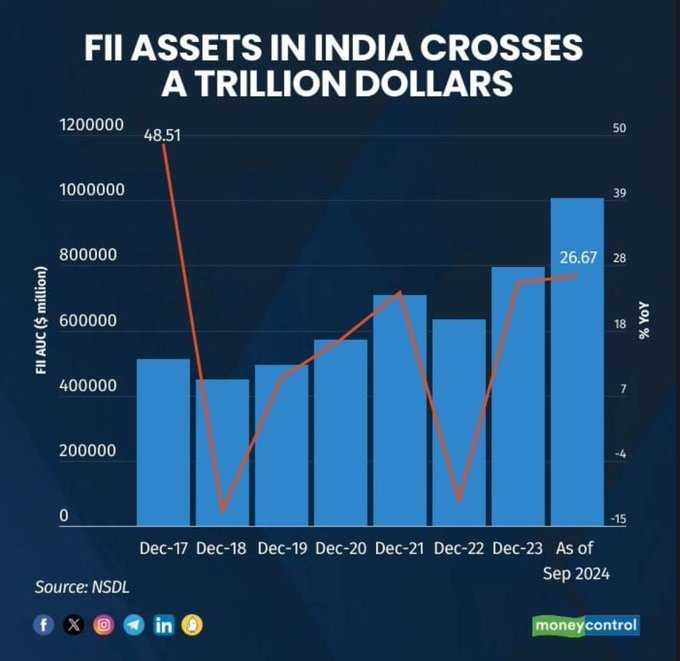1.
Of economic and political systems
Politicians can promise whatever they want regarding the economy, but they won’t be able to deliver if their promises fly in the face of economic reality because, ultimately, the laws of economics are incontrovertible. Free economies are driven by self-interested decisions made by millions of producers and consumers, employers and employees, and savers and investors. Governments can pass laws designed to encourage or even compel behavior, but in general they can’t mandate economic outcomes. There are so many moving pieces and second-order consequences that governments generally can’t engineer both prosperity and the specific economic outcomes that policymakers may seek.
History is littered with command economies that didn’t succeed. There’s proof for this that includes the “control group” required by the scientific method. Eighty years ago, Korea was a single country. Then, following World War II, it was split in two, obviously with similar people, geography and resources: South Korea (under U.S. influence), and North Korea (under Soviet influence). Since then, South Korea has operated as a capitalist democracy and North Korea as a communist dictatorship. There’s little reliable economic data regarding North Korea, but according to the CIA’s Worldbook, its GDP in purchasing power terms is estimated at $2,000 per person versus $50,000 in South Korea. North Korea’s citizens are described as impoverished, but at least it doesn’t have a border problem, since nobody’s trying to sneak in. There are political differences (democracy versus dictatorship) in addition to the economic ones, but I think it’s fair to say capitalism has won.
The incentives provided by free markets efficiently direct capital and other resources where they’ll be most productive. They prompt producers to make the goods people want most and workers to take the jobs where they’ll be most productive in terms of the value of their output. And they encourage hard work and risk taking. The result is a higher standard of living for society in general, but certainly not everyone benefits to the same degree. Thanks to the way incentives interact with people’s different abilities, some people do considerably better than others. Some also prosper thanks to good luck and/or inherited advantage, rather than innate ability. The free-market system doesn’t necessarily produce “fair” outcomes in all circumstances, but economic systems designed to do so generally don’t provide the incentives needed to encourage economic productivity for the collective good. That’s what accounts for their record of failure.
2.
Can vaccines prevent cancer?
Researchers are making progress toward vaccines that train healthy people’s immune systems to eliminate signs of cancer before it develops.
Vaccines are in early trials for people with inherited genetic mutations that put them at a greater risk. Other shots are designed to destroy precancerous lesions to stop full-blown disease.
Vaccines that prevent some cancers already exist; they target viruses that cause cancer. One vaccine protects people against HPV infections that can lead to cervical and other cancers. Another targets hepatitis B, which can result in liver cancer after a long-term infection.
These are more traditional vaccines, which often contain weakened pathogens or noncontagious pieces of them. That mimics an infection, teaching the immune system to later quickly recognize and attack the real threat.
But most cancers aren’t caused by infections. They start with mutated cells that blend in with healthy tissue. Researchers are testing proteins those cells produce as they become cancerous as potential targets for vaccines. The goal is to introduce those proteins to the body and flag them as dangerous. That would train the immune system to hunt down those abnormal cells, similar to attacking an infection.
Many consider cancer vaccines to be a form of immunotherapy, a kind of treatment that has revolutionized cancer care by using the immune system to beat back cancer cells. Some of those therapies release the brakes on the immune system. Cancer vaccines, by contrast, are meant to boost the immune response and direct it where to go.
Pic of the Week
Thought of the Week
"There’s only one corner of the universe you can be certain of improving, and that’s your own self." - Aldous Huxley
“In life the challenge is not so much to figure out how best to play the game; the challenge is to figure out what game you’re playing.” - Kwame Anthony Appiah
Video of the Week
DISCLAIMER:
Investments in the securities market are subject to market risks. Read all the related documents carefully before investing.
SEBI Registered Research Analyst - Cupressus Enterprises Pvt Ltd - INH000013828.
Registration granted by SEBI and certification from NISM does not guarantee the intermediary's performance or provide any assurance of returns to investors.




